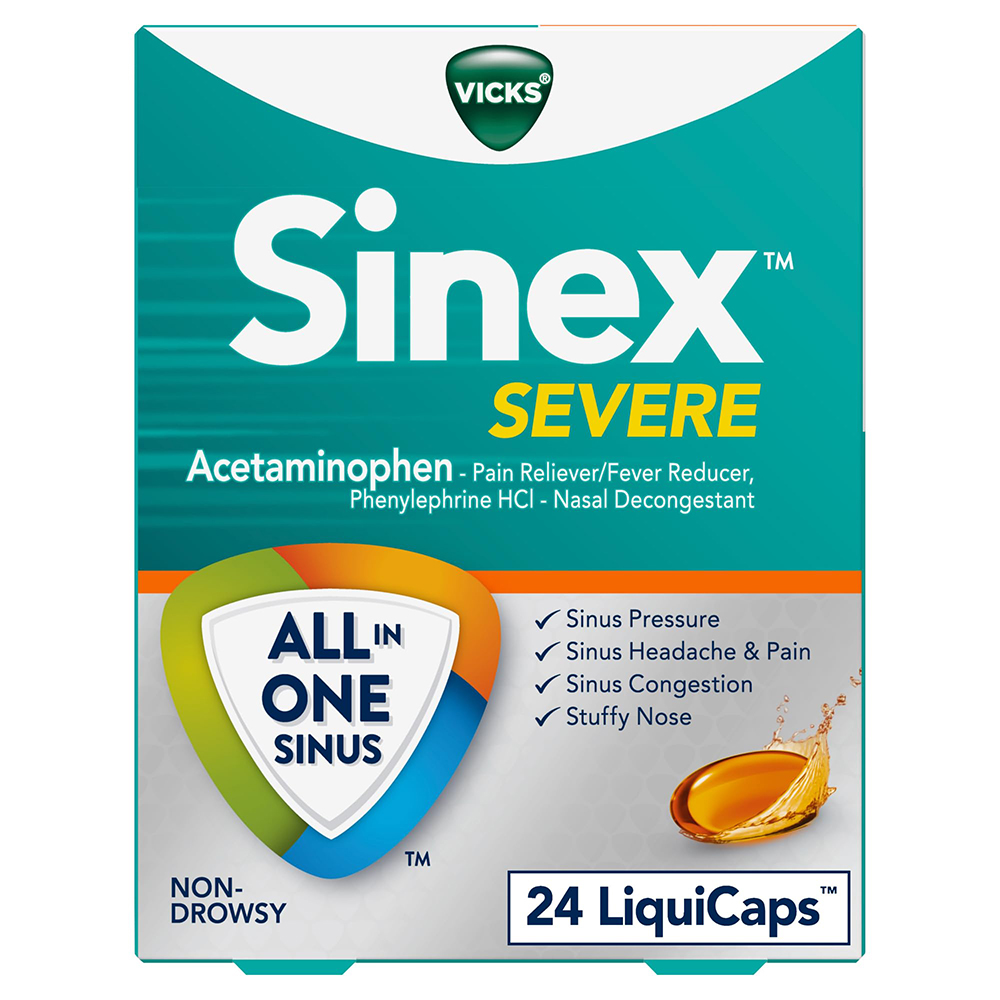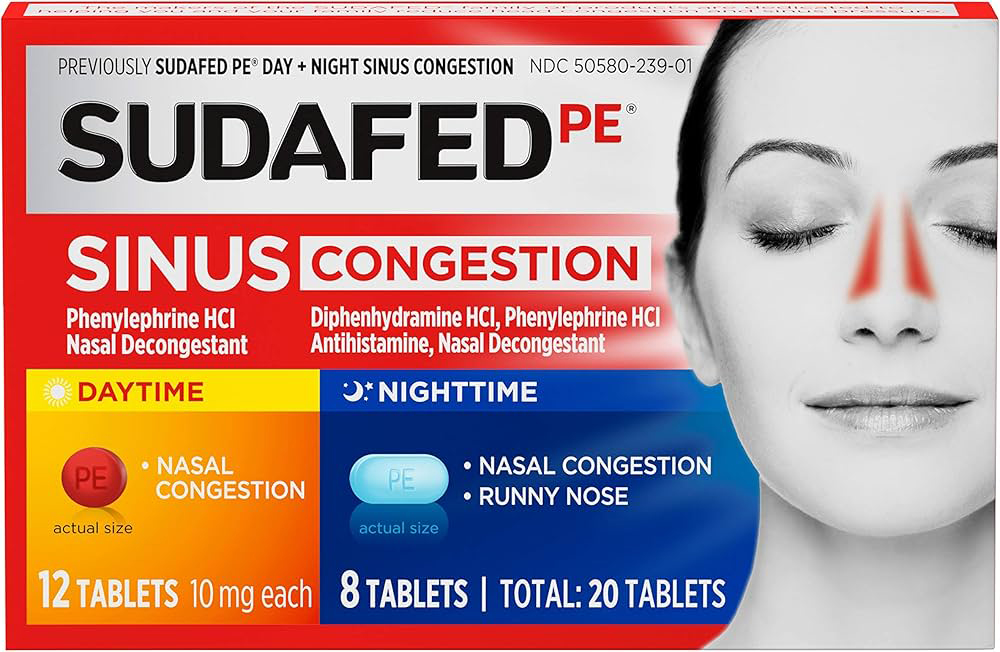|
Getting your Trinity Audio player ready...
|
Edited by: TJVNews.com
The Food and Drug Administration (FDA) has proposed a groundbreaking shift in the regulation of common cold and flu medications, recommending the removal of products containing phenylephrine, a mainstay ingredient found in widely-used decongestants. This decision comes after a series of studies revealed that phenylephrine is ineffective in treating symptoms such as nasal congestion, leaving consumers unknowingly relying on a remedy that offers no real relief. As reported by The Daily Mail of the UK, the FDA’s action could significantly impact the pharmaceutical market, affecting up to $1.8 billion in sales generated by these over-the-counter (OTC) medications.
Phenylephrine, which is commonly found in well-known brands like Vicks Sinex, certain types of Sudafed, and Benadryl, has been scrutinized for years over its actual efficacy. According to the report on The Daily Mail of the UK web site, the FDA’s latest review stemmed from a comprehensive study conducted in March 2023, which analyzed a wide range of clinical data and concluded that phenylephrine performed no better than a placebo in alleviating symptoms associated with the common cold. Scientists found that when ingested, phenylephrine is broken down in the gut and fails to reach the bloodstream in sufficient amounts to provide relief, effectively rendering it useless for treating congestion.

In an official notice, Dr. Patrizia Cavazzoni, director of the FDA’s Center for Drug Evaluation and Research (CDER), underscored the FDA’s responsibility to ensure the safety and efficacy of all medications on the market. “It is the FDA’s role to ensure that drugs are safe and effective,” Cavazzoni stated, as was indicated in The Daily Mail of the UK report. “Based on our review of available data, and consistent with the advice of the advisory committee, we are taking this next step in the process to propose removing oral phenylephrine because it is not effective as a nasal decongestant.” This announcement marks a critical move in ensuring that consumers have access to treatments that genuinely alleviate their symptoms.
The FDA’s proposed order specifically targets products where phenylephrine is the primary active ingredient, meaning that other active compounds commonly found in cold medications, such as acetaminophen (a pain reliever), diphenhydramine (an antihistamine), and dextromethorphan (a cough suppressant), are not affected by this recommendation. The report in The Daily Mail of the UK indicated that the FDA clarified that the ineffectiveness of phenylephrine does not influence the effectiveness of these additional ingredients, as they continue to provide relief for pain, allergy symptoms, and cough.
The proposed regulation has its roots in a decades-long analysis of phenylephrine’s efficacy. Originally approved as a nasal decongestant based on early studies, phenylephrine had been categorized under the FDA’s Generally Recognized as Safe and Effective (GRASE) list, as per the information provided in The Daily Mail of the UK report. However, recent research has led the FDA’s Nonprescription Drug Advisory Committee to reconsider this status, as studies increasingly point to phenylephrine’s lack of therapeutic benefit when taken orally.
While the FDA’s announcement is currently a “proposed order” and not a final regulation, the potential impact on the pharmaceutical industry is significant. According to The Daily Mail of the UK, the formal removal of phenylephrine could reshape the landscape for cold and flu medications, potentially forcing companies to reformulate products and explore more effective alternatives. With major brands potentially affected, this decision illustrates a pivotal moment in drug regulation, as the FDA works to ensure that products on the market provide real value to consumers.
The FDA emphasized that its proposal is based solely on concerns over phenylephrine’s effectiveness, not its safety. While the ingredient does not pose a known risk to health, the decision reflects a growing focus on ensuring efficacy in OTC medications. As consumers increasingly seek reliable solutions for common ailments, the FDA’s rigorous evaluation of phenylephrine sends a message that medications must meet high standards of efficacy to remain on the market.

The ineffectiveness of oral phenylephrine has long been a topic of scrutiny among scientists and healthcare professionals. In 2007, pharmacology experts at the University of Florida petitioned the FDA to examine whether the standard 10-milligram dose of phenylephrine had any decongestant effect. Since then, a growing body of research has cast doubt on the drug’s efficacy. The Daily Mail of the UK reported that a pivotal 2015 study funded partly by the pharmaceutical company Merck & Co found that even doses as high as 40 milligrams were no more effective than a placebo in relieving nasal congestion among a sample of 539 adults. This study, published in the Journal of Allergy and Clinical Immunology, prompted renewed calls for regulatory action.
University of Florida pharmacotherapy professor Dr. Leslie Hendeles, a co-author of the 2007 petition, has been a prominent critic of oral phenylephrine. In response to the 2015 findings, Hendeles urged the FDA to remove the ingredient from the market, arguing that, “Scientific evidence continues to show that the most popular products on the market containing phenylephrine are ineffective,” as was reported by The Daily Mail of the UK. His stance reflects a wider consensus among pharmacologists who question the value of keeping ineffective medications on pharmacy shelves.
While the FDA’s recent proposal aims to remove oral phenylephrine products, it does not apply to phenylephrine used in nasal sprays, where the ingredient is absorbed directly in the nasal passages and has proven effective. As The Daily Mail of the UK noted, nasal sprays bypass the digestive system, allowing phenylephrine to reach target tissues directly. This distinction calls attention to the complexity of drug administration routes, as the same compound may behave differently depending on how it enters the body.
Since the FDA’s initial review of phenylephrine, multiple studies have strengthened the case for its ineffectiveness in pill form. The agency has now concluded that phenylephrine does not meet the standards of effectiveness for nasal decongestion, based on the most current scientific data available. The proposed order to remove oral phenylephrine from the market reflects the FDA’s commitment to ensuring that medications not only meet safety standards but also deliver genuine therapeutic benefits.
If the FDA’s proposal progresses to a “final order,” it could significantly disrupt the cold and flu medication market, which relies heavily on phenylephrine-based products. According to The Daily Mail, cold medications containing phenylephrine generate roughly $1.8 billion in sales annually. Should these products be pulled from shelves, pharmaceutical companies may need to reformulate their offerings, potentially reintroducing pseudoephedrine-based medications or exploring new decongestant alternatives.
If the ban is formalized, manufacturers will no longer be permitted to include oral phenylephrine in their OTC products. The Daily Mail of the UK reported that, as part of this process, the FDA has assured manufacturers that they will have time to either reformulate their medications or remove phenylephrine-only products from the market entirely.
Dr. Theresa Michele, director of the FDA’s Office of Nonprescription Drug Products in the Center for Drug Evaluation and Research (CDER), stated in a recent media call, “Consumers should know that a range of safe and effective drugs and other treatments is available to temporarily relieve congestion symptoms due to allergies or a common cold,” as was indicated in the report in The Daily Mail of the UK. Michele’s comments are intended to reassure the public that the removal of phenylephrine will not leave them without viable options for cold and allergy relief.
One of the nation’s largest pharmacy chains, CVS, has already begun pulling phenylephrine-based products from its shelves in response to the FDA’s announcement. The move illustrates the significance of the FDA’s proposal, as major retailers take proactive steps to align with the agency’s findings. With other retailers likely to follow suit, the market may soon see an increase in demand for alternative decongestants that are proven to be effective.
This latest proposal is currently open for public comment, allowing patients, health professionals, and manufacturers to weigh in on the matter before the FDA issues its final ruling. The agency’s emphasis on public input highlights its commitment to transparency and the importance of considering a broad range of perspectives before making a definitive decision.
For consumers, the FDA’s proposed ban on oral phenylephrine is a significant step toward ensuring that over-the-counter remedies live up to their claims. If the ban is enacted, drug manufacturers will likely explore alternative formulations, potentially leading to a new wave of decongestant options on the market. In the meantime, the FDA’s assurance that effective alternatives are available should help ease concerns for those who rely on OTC treatments for cold and allergy relief.




